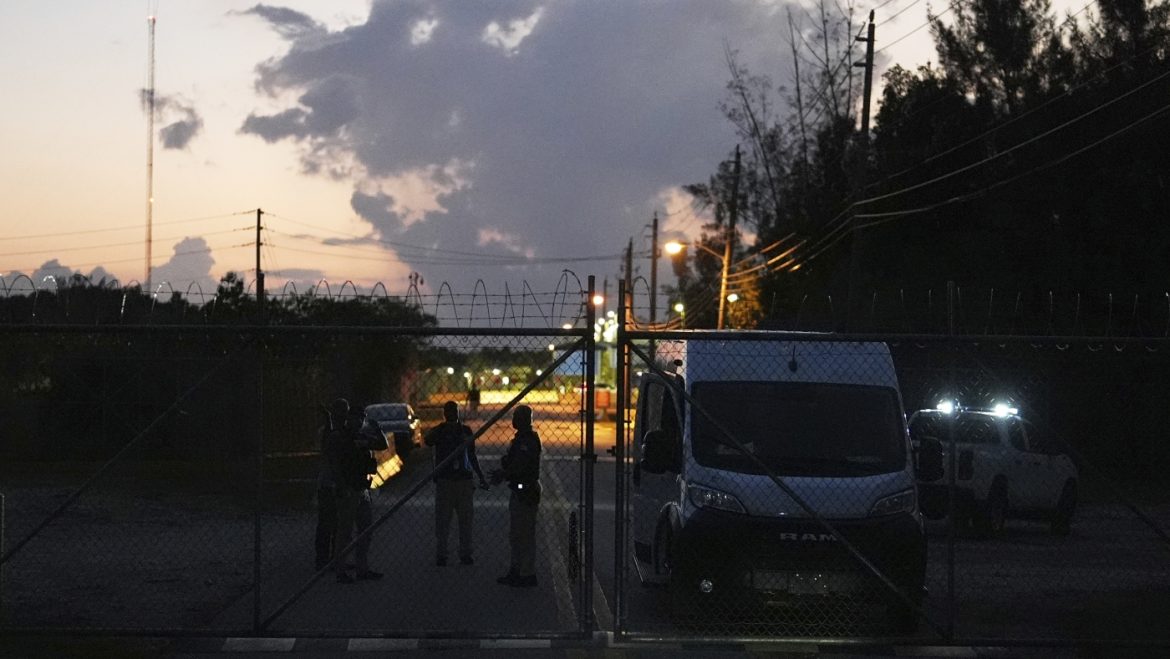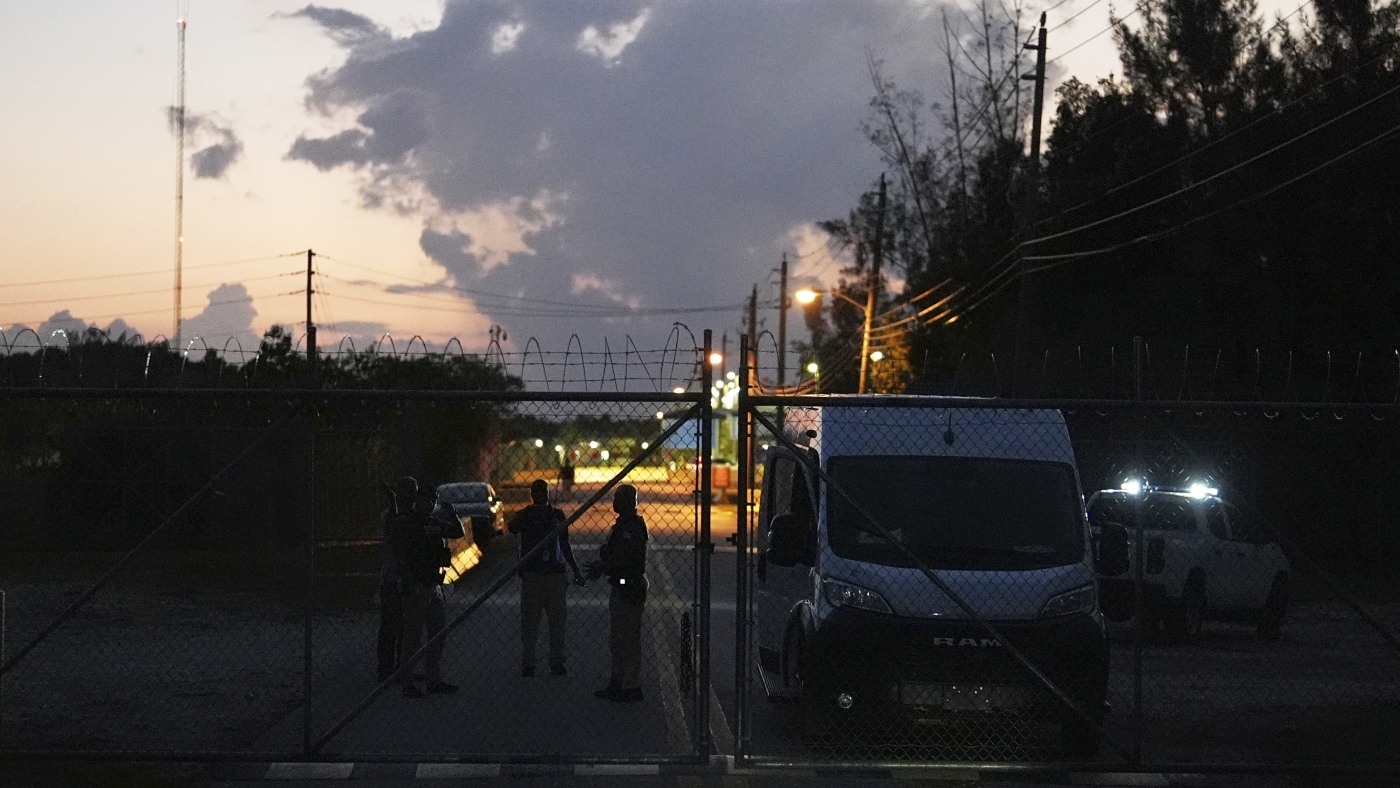The landscape of immigration enforcement in the United States is undergoing significant changes, driven by political priorities, legal interpretations, and shifting societal attitudes. While public discourse often focuses on border security and the deportation of dangerous criminals, a closer examination of Immigration and Customs Enforcement (ICE) detention data reveals a more nuanced and, for some, troubling trend: a substantial increase in the detention of immigrants with no criminal convictions. This phenomenon raises critical questions about the direction of immigration enforcement and its broader implications.
The Data: A Stark Reality
Recent data provides a clear picture of the shifting priorities within ICE detention practices. Multiple sources confirm a significant rise in the number of immigrants detained by ICE who have no criminal convictions. Some reports indicate a near doubling of this population in recent months. This surge contrasts sharply with the detention of individuals with criminal convictions, suggesting a shift in enforcement priorities. One analysis revealed that a majority of individuals detained by ICE had no criminal conviction, highlighting a concerning trend.
Furthermore, while a portion of detained immigrants do have criminal records, the percentage of those convicted of violent crimes is relatively small. This raises questions about the justification for detaining such a large number of individuals with no history of criminal behavior. The data suggests that ICE’s enforcement efforts are increasingly targeting non-criminal immigrants, which contradicts the stated focus on deporting dangerous criminals.
Deciphering the Shift
Several factors contribute to this shift in ICE detention practices, and understanding these factors is crucial for grasping the broader implications:
Policy Changes: Changes in immigration enforcement policies can have a direct impact on who is targeted for detention. A shift towards stricter enforcement, even against those without criminal records, can lead to a surge in detentions. For example, the Trump administration’s emphasis on deporting criminal aliens was accompanied by a broader enforcement net, resulting in the detention of many non-criminal immigrants.
Broadened Enforcement Priorities: The Trump administration publicly stated a focus on deporting criminal aliens, but ICE data suggests a broader net being cast. This expansion of enforcement priorities could explain the increase in non-criminal detainees. Some reports indicated that ICE enforcement surges have largely targeted immigrants without criminal convictions or criminal charges, contrary to claims of prioritizing dangerous criminals.
Increased Resources and Capacity: Expansion of ICE’s budget and detention capacity could also contribute to the rise in detentions, regardless of criminal history. With more resources available, ICE may be able to detain a larger number of individuals, including those who would not have been priorities in the past. This increased capacity allows for more aggressive enforcement tactics, leading to a higher number of detentions.
Zero Tolerance Policies: The implementation of “zero tolerance” policies, even for minor immigration violations, can lead to detention. This approach treats any violation, regardless of its severity, as grounds for detention and potential deportation. Such policies have resulted in the detention of individuals who might otherwise have been allowed to remain in the community while their cases are processed.
Administrative Arrests: ICE officers have broad authority to make arrests based on administrative immigration violations, such as overstaying a visa. These arrests can lead to detention, even in the absence of any criminal charges. The broad discretion granted to ICE officers allows for the detention of individuals who may not pose a significant threat to public safety.
The Human Cost of Detention
Detention, regardless of criminal history, has significant human costs. The consequences can be devastating for individuals and families:
Psychological Trauma: Detention can be a deeply traumatic experience, leading to anxiety, depression, and other mental health issues. The uncertainty and fear associated with being detained can have lasting psychological effects on individuals and their families.
Family Separation: Detention often leads to family separation, as parents are detained and potentially deported, leaving children behind. This separation can have a profound impact on the well-being of children and families, causing emotional distress and financial instability.
Economic Hardship: Detention can lead to job loss and economic hardship for individuals and their families. The inability to work while detained can create financial instability and put families at risk of poverty. The economic impact of detention extends beyond the individual, affecting entire communities.
Legal Challenges: Navigating the complex immigration system while detained can be extremely difficult. Access to legal representation is often limited, and detainees may struggle to understand their rights and options. The lack of adequate legal support can result in unfair outcomes and prolonged detention.
Due Process Concerns: Critics argue that detaining individuals without criminal convictions raises serious due process concerns. The right to a fair hearing and the presumption of innocence are fundamental principles of the legal system, and some argue that these principles are being undermined by the detention of non-criminal immigrants. The lack of transparency and accountability in detention practices further exacerbates these concerns.
Contradictions and Concerns
The surge in detentions of immigrants without criminal convictions raises several contradictions and concerns:
Public Safety: The stated rationale for prioritizing immigration enforcement is often public safety. However, detaining individuals with no criminal history does not necessarily enhance public safety and may divert resources away from efforts to apprehend and deport dangerous criminals. The focus on non-criminal immigrants may undermine the effectiveness of immigration enforcement efforts.
Resource Allocation: Detaining a large number of non-criminal immigrants places a significant strain on ICE’s resources. These resources could potentially be used more effectively to address other priorities, such as combating human trafficking or investigating transnational crime. The allocation of resources to detain non-criminal immigrants may not be the most efficient use of taxpayer funds.
Moral and Ethical Considerations: Many argue that detaining individuals who have not committed any crimes is morally and ethically questionable. The detention of vulnerable populations, such as asylum seekers, raises particular concerns about human rights. The ethical implications of detaining non-criminal immigrants must be carefully considered in the context of broader societal values.
Economic Impact: Immigration contributes significantly to the U.S. economy, and detaining and deporting immigrants can have negative economic consequences. The loss of workers and consumers can harm businesses and communities. The economic impact of detention extends beyond the individual, affecting entire industries and local economies.
The Future of Immigration Enforcement
The trend of increasing detentions of non-criminal immigrants raises fundamental questions about the future of immigration enforcement in the United States. It is crucial to consider the long-term implications of these policies and to engage in a thoughtful and informed debate about the best path forward.
Policy Reform: Policy reforms are needed to ensure that immigration enforcement is focused on genuine threats to public safety and national security. This could involve prioritizing the deportation of violent criminals and providing alternatives to detention for non-criminal immigrants. Reforms should aim to strike a balance between enforcement and humane treatment.
Due Process Protections: Strengthening due process protections for immigrants is essential to ensure that their rights are respected. This could include providing access to legal representation and ensuring that detention decisions are based on individualized assessments rather than blanket policies. Due process protections are crucial for maintaining the integrity of the immigration system.
Community-Based Alternatives to Detention: Investing in community-based alternatives to detention can provide a more humane and cost-effective way to manage immigration enforcement. These programs allow immigrants to remain in their communities while awaiting their immigration hearings. Community-based alternatives can reduce the human and financial costs of detention while ensuring compliance with immigration laws.
Transparency and Accountability: Greater transparency and accountability are needed to ensure that ICE is operating effectively and ethically. This could involve publishing more data on detention practices and establishing independent oversight mechanisms. Transparency and accountability are essential for maintaining public trust in immigration enforcement agencies.
A Call for Reflection
The increasing detention of immigrants with no criminal convictions is a concerning trend that demands careful scrutiny. It compels us to reflect on our values, our priorities, and our vision for the future of immigration in the United States. Are we truly enhancing public safety by detaining individuals who pose no threat? Are we upholding our commitment to due process and human rights? Are we allocating our resources in a way that reflects our values and priorities? The answers to these questions will shape the future of immigration enforcement and the kind of society we aspire to be. Only through thoughtful reflection, informed debate, and a commitment to justice can we create an immigration system that is both effective and humane. The path forward requires a balanced approach that prioritizes public safety while respecting the rights and dignity of all individuals.


